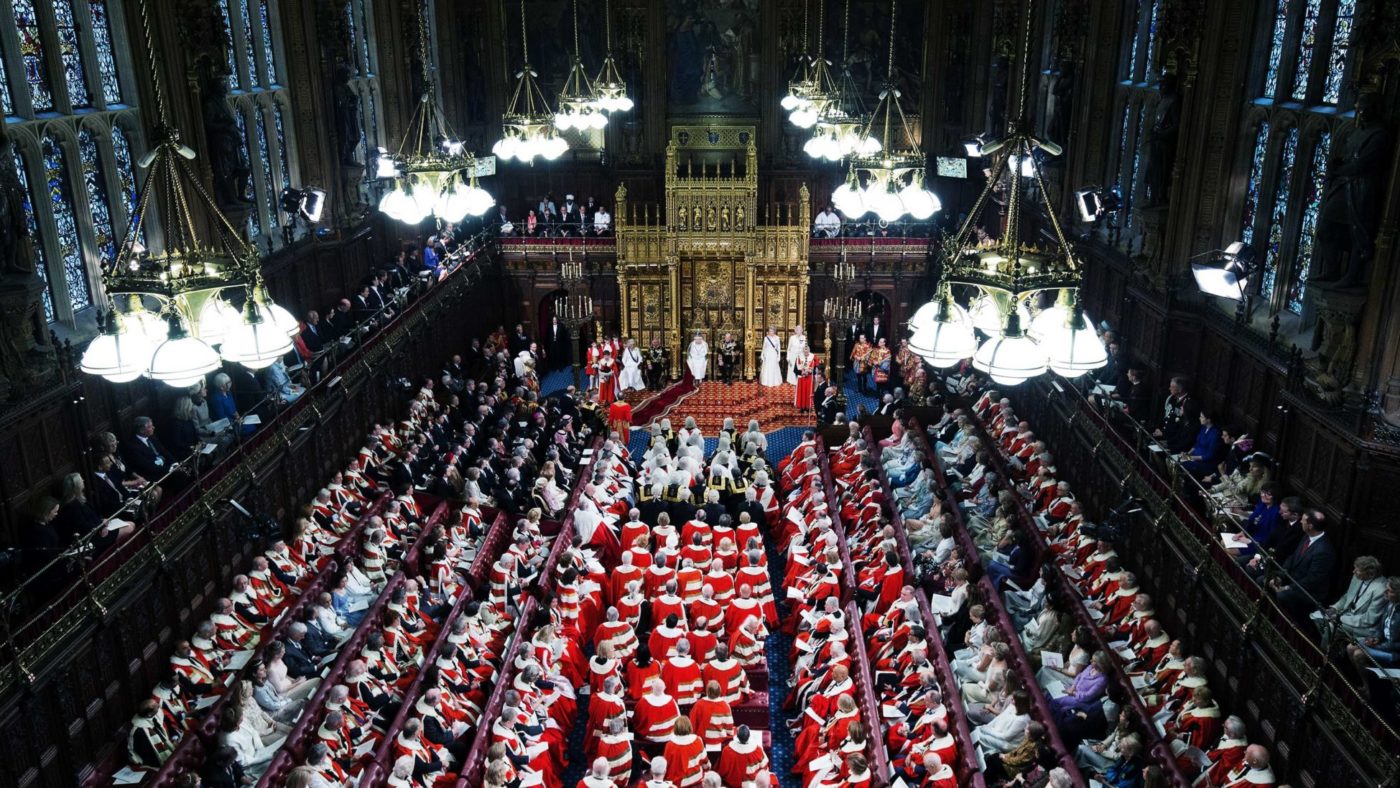One would think that this Government, of all governments, would be wary of chasing headlines with glib and ill-conceived constitutional innovations.
After all, has the Prime Minister not bent himself to the task of correcting what he sees as the over-mighty judicial culture fostered by Tony Blair’s decision to transform the Law Lords, which even their critics concede functioned perfectly well, into the Supreme Court?
Yet it has barely been a month since the general election and already party chairman James Cleverly has confirmed that the Tories are considering moving the House of Lords to York.
Officially the purpose of this is to help the second chamber “reconnect with the North”, although it isn’t hard to imagine it having originally been conceived as a punishment for the peers who did so much to frustrate Brexit during the last Parliament.
It has been met with a quite ferocious response. The critics rightly point out that the move would cost billions of pounds of public money which could be better spent on things northern voters actually care about, such as transport. But the case against this proposal runs to far more than mere money.
For starters, moving the Lords would be almost without international precedent. Even in countries which do divide their governing institutions between different cities, such as South Africa, the pattern is at least to keep the executive, legislative, and judicial branches whole.
Yet the Lords is only one part of Parliament, and moving it would split the legislature in two. Given the unforeseen consequences which have arisen from moving the senior judges to a separate building just across Parliament Square, it is not difficult to imagine the problems arising from such a schism would be just as serious.
Boris Johnson would do well to remember that it is extraordinarily difficult, if not impossible, to fully grasp all the internal dynamics of a complex system such as Parliament, especially one which has evolved organically over a long period of time, and not become the latest vandal to rip up ‘Chesterton’s Fence’.
Nor should he, the first Prime Minister since the end of New Labour to appoint peers to senior positions in his Cabinet, fail to recognise how much more difficult that would be if the chamber to which they report was moved hundreds of miles from Whitehall. It would be unfortunate if the Government were to make it harder to tap the upper house as a reservoir of able ministers.
Likewise, any MPs concerned about the dangers of their being permanently displaced from the Palace of Westminster – and the ongoing debate over the renovations suggests that there are a lot of them, especially on the Conservative benches – would do well to resist any move to set such a precedent for the other place.
Even beyond the clear danger of damaging the operation of the House of Lords in the constitution, it is also far from certain that moving it to York (or anywhere else) would even have the beneficial effect the Prime Minister reportedly hopes for.
As the BBC’s move to Salford shows, simply transplanting an institution doesn’t necessarily bed that institution into the fabric of its new environment. Instead it often just creates a smaller outpost of the elite bubble the move was supposed to break, with the most important feature of the new location being its connections with (where else?) London.
Already, even local business groups in York are saying that merely hosting the peers five days a week will do little good if they continue to weekend in London, whilst commentators from further afield are pointing out that York’s less-developed transport links to the rest of the country – especially by air – would make it more difficult to get to than London from places such as Northern Ireland.
Once again, the international auguries are not promising. Even where countries go the whole hog and move all their governing institutions and the status of capital to a new city, the result is very often a relatively soulless ‘government town’ along the lines of Brasilia or Canberra, one with even less of an organic connection to the rest of the country.
And whilst Johnson’s newly-minted Tories are unlikely to be reviving the party’s long-term interest in allowing regional variation in public-sector pay, they ought to be mindful of the potential impact of a sudden influx of London-weighted government and parliamentary jobs on a different local economy. It could make it harder for local private-sector firms to compete on wages and substitute state largesse for genuine economic recovery.
The great advantage of the United Kingdom’s uncodified constitution is that it allows for incremental, organic change, with individual issues fixed as they arise without the need to try and redesign any part of it from the ground up. If the Government has genuine concerns about how the Lords operate (and the better-acquainted an observer is with the upper house, the more muted their criticisms tend to be) then they should set out clearly what those are and propose tight, technical fixes.
But to engage in sweeping, showboating change of this sort would show exactly the same hubris which led Blair to conjure up the Supreme Court, the Scottish Parliament, and the Human Rights Act, the legacies of which the Conservatives have been wrestling with ever since. It will do the Lords, the Government, and the country no good at all.
Click here to subscribe to our daily briefing – the best pieces from CapX and across the web.
CapX depends on the generosity of its readers. If you value what we do, please consider making a donation.


